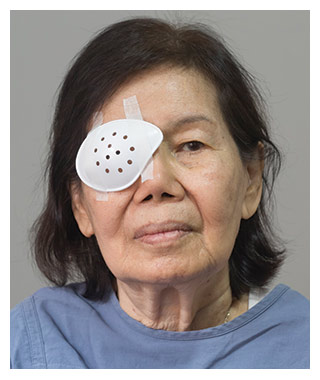 Cataract surgery is one of the safest procedures a person can have. There are over 3 million cataract surgeries done each year in the United States alone, and the vast majority of patients have excellent outcomes. An uncomplicated cataract surgery often takes less than 10 minutes. Although cataract surgery is safe, there can still be complications. Post-operative care is essential. Explaining this care to patients is an important part of a technician’s job.
Cataract surgery is one of the safest procedures a person can have. There are over 3 million cataract surgeries done each year in the United States alone, and the vast majority of patients have excellent outcomes. An uncomplicated cataract surgery often takes less than 10 minutes. Although cataract surgery is safe, there can still be complications. Post-operative care is essential. Explaining this care to patients is an important part of a technician’s job. Before the surgery through instructions are critical to a smooth outcome for the surgery day. First, patients need to make sure they have transportation to and from the surgical clinic the day of the procedure. They should also have their sunglasses to wear to protect the eyes from light and debris in the air. Additionally, the patient will need a shield to wear over the operative eye during naps and bedtime for at least a week.
Remind patients that it may take a few days for the vision in the operative eye to become clear, and there is a possibility of red bloodshot eyes. There may also be some bruising or tenderness around the eye.
Take a few precautions during the first week after surgery for the best healing results, such as avoid bending over (causes added pressure to the eye); no heavy lifting or strenuous activity for a few weeks; no swimming for at least one week; don’t expose eyes to irritants such as cleaners or extreme wind; patients should wear the clear shield at bedtime for the first week to prevent rubbing or bumping the eye in their sleep; do not rub the eye; and no matter how good the eye looks, do not stop using the eye drops prescribed.
 People in poor health may have a longer healing period than others, such as those with diabetes. This may also include patients with high blood pressure and autoimmune diseases.
People in poor health may have a longer healing period than others, such as those with diabetes. This may also include patients with high blood pressure and autoimmune diseases. Obviously, patients need to follow post-operative instructions. It is the job of the technician or assistant to explain the details of post-operative care to the patient and their caregivers. Written instructions are helpful for short memories. Be aware these patients are nervous and have compassion for them. It is easy for someone to tell another person what is going to happen, but being the patient is not as easy. Make sure patients complete all post-operative visits. If they do not show up for their appointment, call them and reschedule, explaining the need and importance of follow-up care.
Finally, cataract surgery is quick and easy for most; it is the job of the paraoptometric technician to help it go as smoothly as possible for all.













